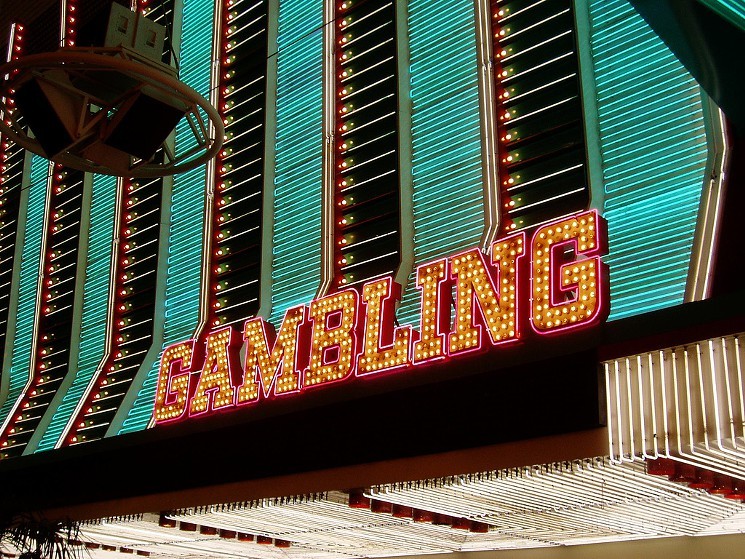Photo by Joel Kramer via Flickr creative commons
With football season ramping up, various social media sites have seen a swarm of new advertisements urging users to download various apps that would allow them to win big on the outcomes of upcoming sporting events.
Some ads make an even more enticing claim to potential Texas bettors: that placing money on the games is newly legal. One ad from prediction market app Polymarket states that football trading is “now legal” in Texas. Other ads imply there are workarounds to the state’s strict gambling ban.
“I found a way to bet on the NFL even though we live in Texas,” reads a simulated text in one Instagram ad from prediction market app Kalshi.
Through prediction markets and daily fantasy sports, also known as DFS, Texans have more access than ever to win — or lose — money based on the outcome of sporting events. And it can be done without leaving the state, where betting on contests or games is both illegal and a sticking point among state officials.
Despite the ads’ claims, no new state or federal laws related to gambling regulation passed this year, except for a restriction on online lottery ticket couriers. Repeated efforts in the Texas Legislature to legalize sports betting, casinos and DFS have all faltered, leaving the games unregulated and unclear on these digital alternatives beyond a nearly decade-old nonbinding opinion from Attorney General Ken Paxton.
The lack of legal movement has not stopped online sites from giving Texas players alternatives to sports betting from exploding in availability. The two new ways of playing lean on federal regulations rather than state law to provide their services to players. Executives from DFS and prediction market businesses have pushed back on being linked to sports betting, claiming their peer-to-peer services are skill-based or federally regulated financial transactions, respectively.
While other states have taken aggressive legal action to counter the businesses’ spread, Texas has done little to deter their growth, despite targeting other online gaming services earlier in the year. Supporters said that illegal gambling has become widespread — and that these new alternatives are safer and more responsible options for a market lawmakers seemingly ignore.
“I think potentially something here that people are underrating is that in states like Texas or California, where sports betting is illegal under state law, most people will just go to an offshore book instead,” said Jack Such, head of media operations for Kalshi. “It’s not like sports betting is really inaccessible. There are tons of platforms.”
Both DFS and prediction market businesses make their money through transaction fees, and players bet against each other, rather than betting against operators like traditional sportsbooks or casinos. The separation provides an extra layer of insulation, but it has not stopped the services from being widely understood to supplant sports betting, despite the denial from operators.
Gregory Gemignani, a gaming law lawyer and professor at the University of Nevada, Las Vegas, said the alternatives are “pretty much identical” to sports betting and blend elements of their respective origins — futures trading and old-school fantasy sports — with classic gambling structure.
“Taking things that we already have and just combining them, I don’t think, is all that novel,” Gemignani said. “It just wasn’t done before because most people saw it, especially in the industry, as another form of a sports bet, which has limitations on transmission across state lines — which would make the activity pretty unattractive.”
There’s more, so read the rest. I followed the rise of prediction markets last year, but I have no interest in gambling and haven’t read a whole lot about how they work, so I can’t explain to you with any authority why this is a loophole in the law. But as attorney Gemignani says later in the piece, as long as no one is enforcing any laws against it, it may as well be legal. People will certainly indulge in it under those conditions. As such, I figure one of two things will eventually happen: Either someone will request an AG opinion on Kalshi and its peers, in which case we’ll get some guidance on the matter, or some other actor will do something that will require the state courts to weigh in. The latter could be a lawsuit or some enterprising law enforcement group busting a “prediction markets” ring. Until then, do what you want to with this.


The only sports gaming proposals Ive seen in Texas involves giving a monopoly to pro sports owners, meaning African Americans, LGBTs, and possibly Hispanics are BANNED from the highly lucrative initial licenses.
Bill, can you provide an active hyperlink to the sports gaming proposal you’ve read that bans African Americans, LGBTs, and possibly Hispanics from the highly lucrative initial licenses ?